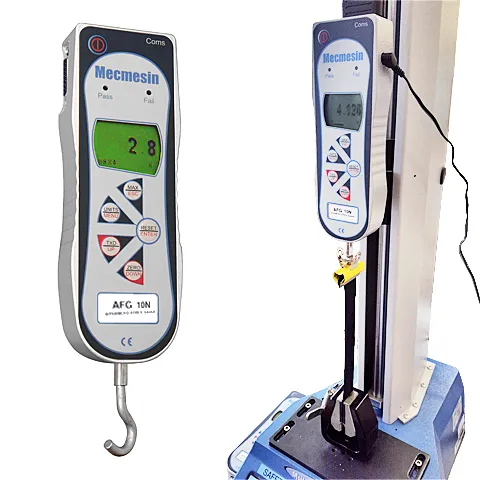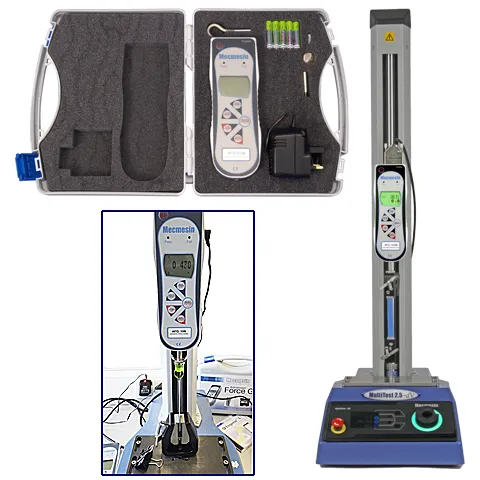
The effect of washing on textile elasticity


Solution
- Motorised force testing system
- Digital force gauge and data aquisition software
- Vice grips with wave-form jaw faces for fabric
Benefits
- Simple and reliable pull to break testing
- Fixtures specifically suited to fabric and textile gripping
- Easy to change specimens for back-to-back data analysis
“Only measuring up to a few Newtons of force with an AFG 2500 N was not enabling us to proceed with our investigation and Mecmesin kindly lent us a more sensitive AFG 10N which instantaneously improved the quality of data we were collecting.”
Alex Radford, Undergraduate Student (Department of Physics)
Durham University
Requirement
Durham University is a world top 100 institution and the first ever to establish overseas campuses.
Undergraduate and research programmes in the Department of Physics cover various diverse disciplines, including applied areas such as material physics.
The combination of solid mechanics, chemistry and materials science offers insight into many real-world industrial applications.
The effect of detergent on the elasticity of different types of fabrics is one area of investigation, in association with Procter & Gamble, where practical measurement of data is used in support of scientific theory.
The elasticity (impacting tactile feel) of clothing is fundamental to the consumer’s perception of the quality of the garment and noticeable change in this physical attribute promotes opinion that the material is aging, shrinking or deteriorating prematurely.
This change in tensile elongation characteristics can be a result of repeated washing, and the understanding of the effect of cleaning product formulation is of value to both the detergent producer, textile fabric manufacturer and clothing maker (for care and washing instructions).
Solution
Mecmesin supplied a motorised MultiTest-d tension testing system with a digital force gauge and software to acquire the data for export and subsequent analysis.
Calculation of the spring rate of the material from the linear portion of the force-displacement graph is the important parameter in these comparative studies, and accuracy is essential for differentiating between relatively small force values.
Matching the gauge loadcell’s full-scale capacity to the expected maximum sample load optimises the accuracy and the comparison of results benefits from the increased resolution.
The easy-to-use gauge and test stand combination in this academic environment has enabled the students to perform quick, precise measurements of the physical properties of the treated materials.
The flexibility of the software enables bespoke research calculations to be performed, unique to the clothing manufacturer or the detergent producer, as well as evaluating performance against any relevant industry standards - for example ASTM D5034: Elongation of Textile Fabrics (Grab Test).
Test equipment
- MultiTest 2.5-d or dV motorised force tester
- AFG 10 N digital force gauge, std. accessories and wedge grip
- Emperor™ Lite or VectorPro™ Lite data acquisition software





